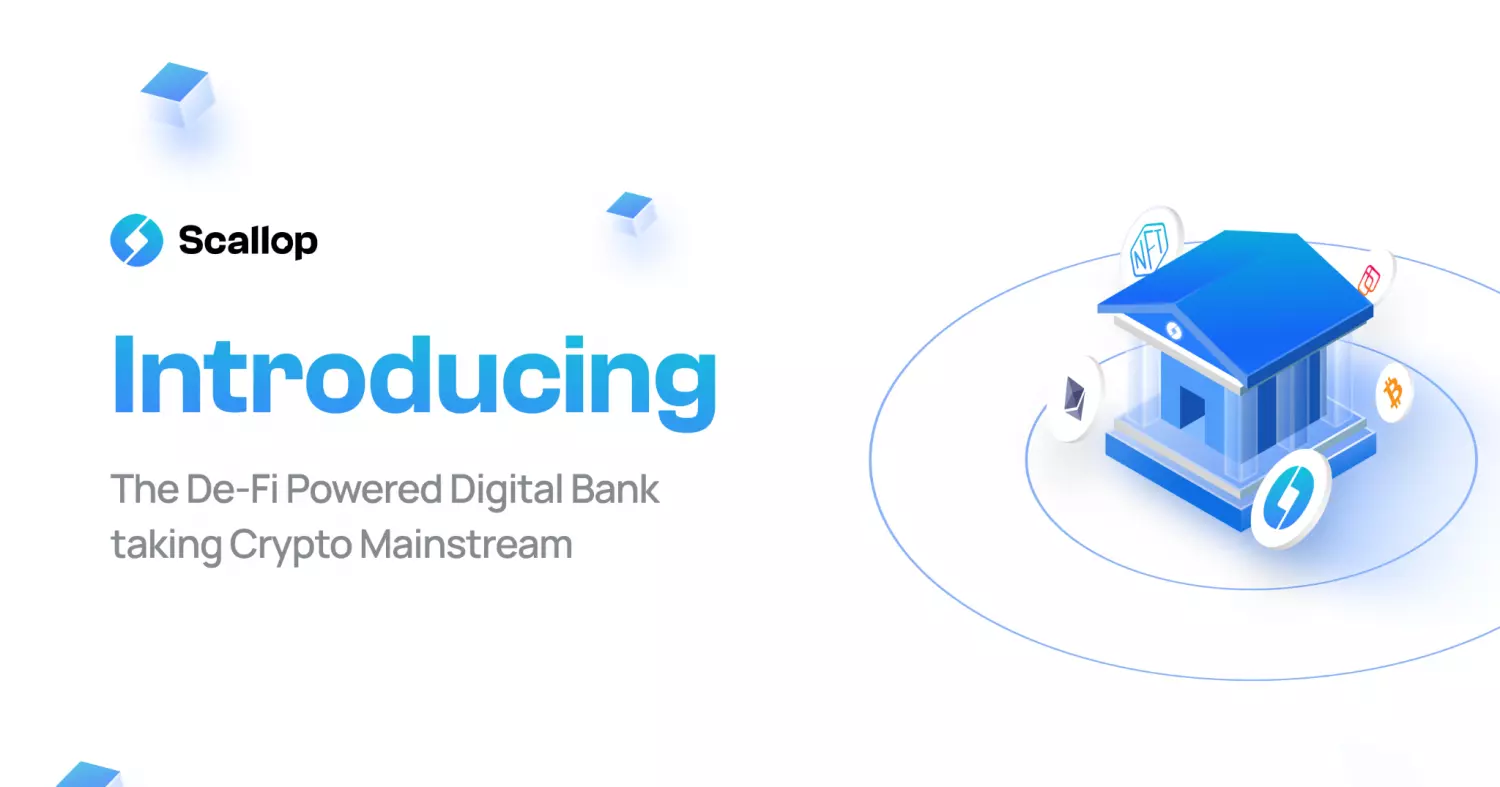Twelve months ago, decentralised finance (De-Fi) was still in its development stage and posed little threat to the traditional banking sector. Fast forward one year to today and the world renowned Wharton School of Business (whose alumni include Elon Musk, Warren Buffet, Sundar Pichai and Anil Ambani) have published a report stating that De-Fi can “transform global finance”.
One company leading this transformation is Scallop, a new digital bank which allows both institutional and retail participants access to De-Fi ecosystems.
The Time is Now
Previously digital banks were holding off from integrating De-Fi to their platforms due to concerns over demand and regulatory barriers. However, Scallop is pioneering change in the space and is the first FCA regulated neobank which provides access to De-Fi protocols and tokens for its users.
Fintechs such as Acorns, Robinhood and Stash have evidenced that there is extremely high demand from retail to grow their wealth through new methods of investment. This trend also appears in De-Fi, with the total value locked (TVL) in De-Fi protocols increasing 8300% from $980m to $87bn over the last year. Additionally, a recent report from PWC shows that nearly half (46%) of hedge funds have added cryptocurrencies to their portfolios, indicating that demand is there on an institutional level as well as from individuals.
What is Scallop and How does it Work?
Scallop is a multi-faceted platform that delivers next-generation cryptocurrency solutions by combining the latest technological and financial innovations. The company's mission is to bring cryptocurrency to the mainstream by providing users a simplified interface which bridges the traditional banking and cryptocurrency worlds. It will enable users to be able to spend their cryptocurrencies and De-Fi liquidity pool (LP) tokens using a debit card, for the very first time!
DeFi Powered Banking with Scallop
Apart from the traditional banking services such as direct payments, money transfer, etc. Scallop offers DeFi products that allow users to use their crypto assets in day-to-day life directly using a virtual or physical debit card. Users can directly pay for a product or service without having to convert tokens into fiat currency on a cryptocurrency exchange and then send that fiat to their bank account.
Some of Scallop’s Products include:
Scallop Banking Accounts
Scallop accounts are the first of their kind that’ll allow users to deposit DeFi tokens and spend them without worrying about having to withdraw the tokens from various DeFi protocols.
Users can set up a Personal or Business Bank Account without any credit checks by using cryptocurrencies. Instant KYC will allow users to open GBP/IBAN bank accounts within minutes. Scallop Accounts are traditional bank accounts that can be used for daily activities such as receiving salaries, setting up direct debits, sending money, etc.
Scallop Cards
Scallop Cards are debit cards associated with a bank account that can be used for cash withdrawal or shopping worldwide.
With a Scallop card users can spend staked DeFi tokens without having to worry about unstake them and converting them into crypto and then into fiat, and then finally being able to spend them.
Scallop Hardware Wallet
Scallop provides a secure hardware wallet that is used to store cryptocurrencies offline. Users can buy, sell and exchange cryptocurrencies directly from their hardware wallet into Scallop Bank Accounts. These wallets are a banking grade specification that is:
- Made of EAL 5+ financial grade crypto chip which completely protects your private keys.
- Equipped with Infineon CCL 6+ security, the highest-grade security issued for financial applications. Your crypto, your keys.
- Embedded with a self-destructing and key-erasing mechanism that protects your assets from any possibilities of hacking.

